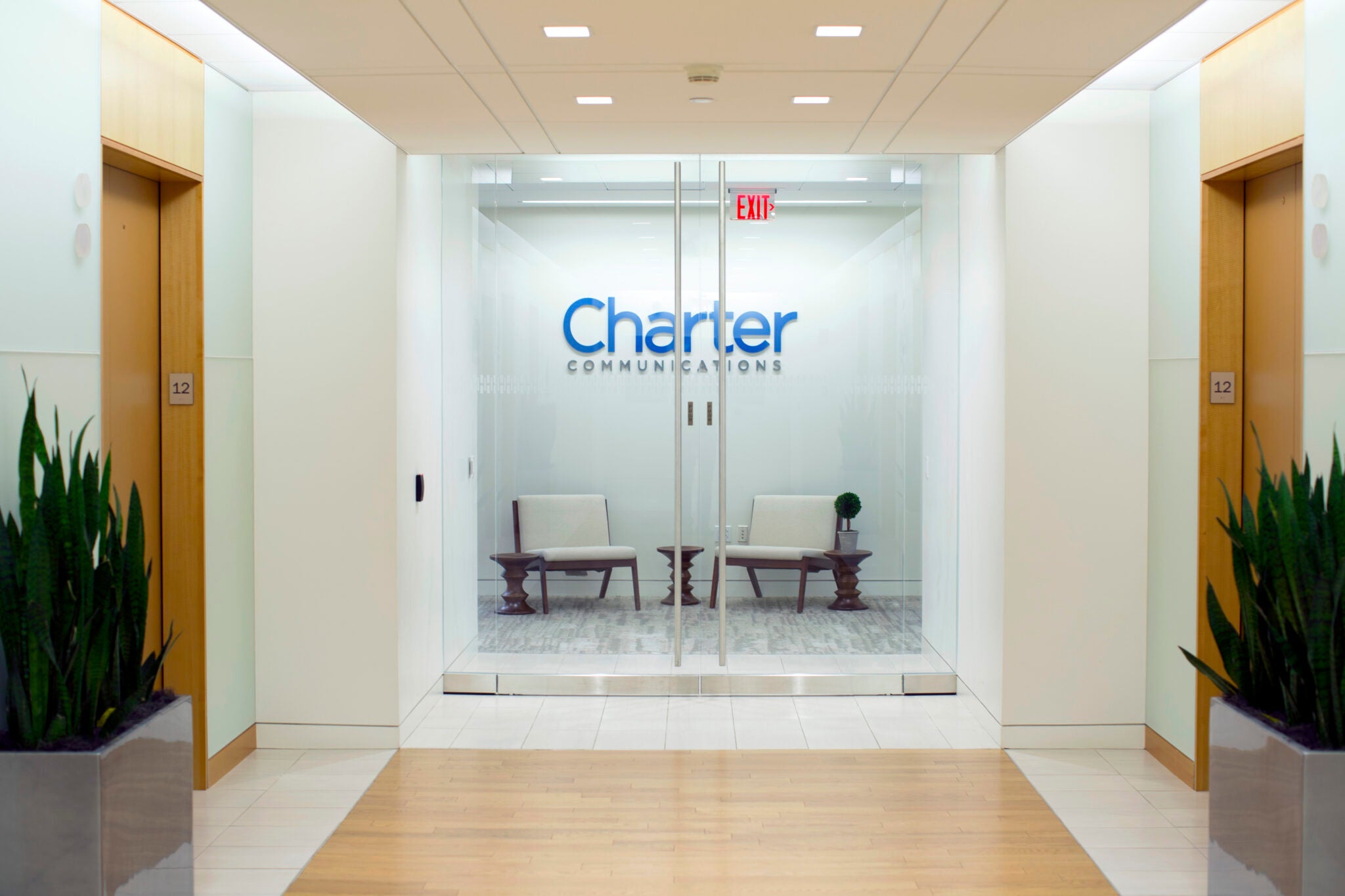
Telecommunications giant Charter is halting its “aggregated video store” strategy as the company is currently focusing on how to keep its traditional video subscriber losses at a minimum.
At the Deutsche Bank Media, Internet, and Telecom Conference, CFO Jessica Fischer discussed Charter’s embrace of app-based video products as a means of mitigating subscriber losses. Charter has previously said it hopes to launch a video aggregation marketplace and Fischer said that cable has the history and the relationships to make that kind of function work, but she suggested that the streaming industry still needs to work out some issues with pricing and fragmentation.
“I think all of us as consumers probably understand how difficult the app-based environment can be,” she said. “It’s expensive. There are a lot of them. There is definitely a space in that market for there to be an aggregation product. Cable has the history and the relationships, I think, to drive that aggregation. But I think getting there from a market perspective is going to be tough.”
Fischer said that the opportunities to aggregate video content is potentially cost prohibitive, at least for the time being.
“When you pull them all together initially, it’s going to be extremely expensive,” she said. “And that portion of the market just has challenges that I think they need to work their way through. We certainly are thinking about aggregation and about, from a product perspective, how we can play a role in pulling it together. But I think right now is maybe just not quite time yet given the number of products out there and sort of the difficulty of pulling it all in.”
Charter CEO Tom Rutledge reiterated this a couple of days ago at Morgan Stanley’s Technology, Media & Telecom Conference, “There’s more damage to come in video. There’s nothing about the old model that’s really changed. The price keeps going up,” he said.
While Charter figures out the best way to approach the streaming aggregation market, competitors like Comcast and Verizon are moving further into the space. Earlier this month, Verizon announced the upcoming +Play, a platform designed to market third-party streaming services to customers such as Netflix, Disney+, Hulu, ESPN+, discovery+, AMC+, Peloton, WW International, A+E Networks, The Athletic, Calm, Duolingo, TelevisaUnivision’s Vix+, and Live Nation’s Veeps live streaming concert service.
Still, as those same competitors continue to see their video subscriber bases decline, Charter has managed to keep its traditional video customer base from dropping at the same rate as the overall U.S. pay-TV industry. A recent report from Leichtman Research Group stated that pay-TV providers lost 4.69 million subscribers in 2021. Charter lost 367,000 subscribers last year, whereas Comcast lost 1.67 million subscribers.
During the fourth quarter, the cable operator lost 71,000 residential video customers, but ended 2021 with an increase of 13,000 video customers, making a total of 15.833 million.
In terms of performance regarding video subscriber trends, Fischer said Charter had done this by focusing on value for customers and offering skinnier bundles for customers who want them.
Fisher says from a strategic perspective, “we’ve helped our customer base find packages that provide value to them. So for a large component of customers, that’s making sure that they are able to purchase sort of a fully-loaded video package instead of ending up in a basic cable package. And we’ve done that by pricing sort of as well as we can in video products. So trying to capture the most customers that we can in that high-value video product that works well for them. On the other side of that, so you have customers in that group.”
“And then, on the other side, for customers who really want a skinnier bundle, we’ve done a lot to try to manage into being able to offer those skinnier bundles to the customers that want them. And so I think in pulling those couple of things together that we’ve been pretty successful in deploying a set of products that customers really like and doing it in a way that provides them with value,” Fisher added.
She then warned that Charter’s ability to limit costs for video customers would continue to be disrupted by rising costs from programmers.
“But ultimately, in the video business, the problem is that you’re always at the mercy of the programmers,” she said. “I mean, we’re really just a pass-through of that expense. And our ability to continue to limit costs to consumers is limited by the programmers who continue to drive up pricing on an ever-shrinking base. And until that changes, I don’t know that there’s a way to sort of be confident in what the long-term trends in video are because that component of the business is hard for us to control. So I think we will do what we can for as long as we can. And we think it does provide value to our customers to do that. But it’s hard to say exactly where it goes.”